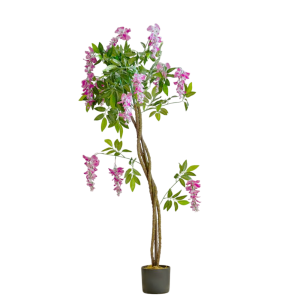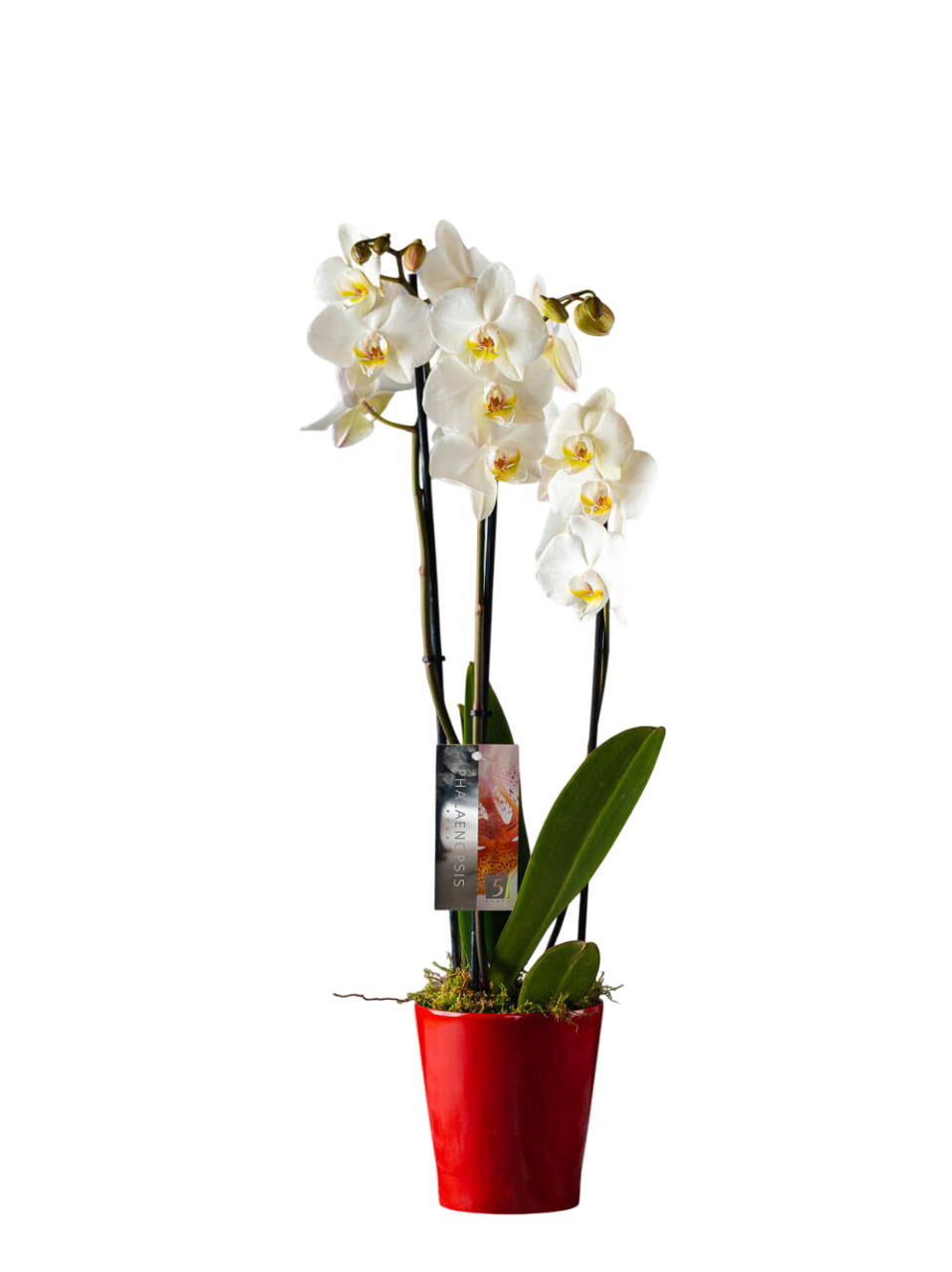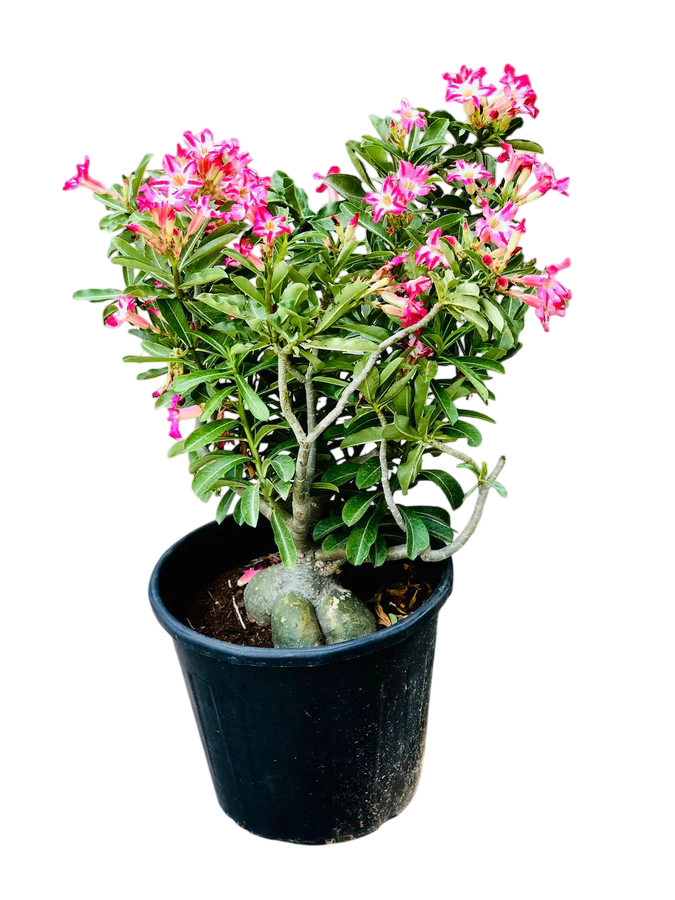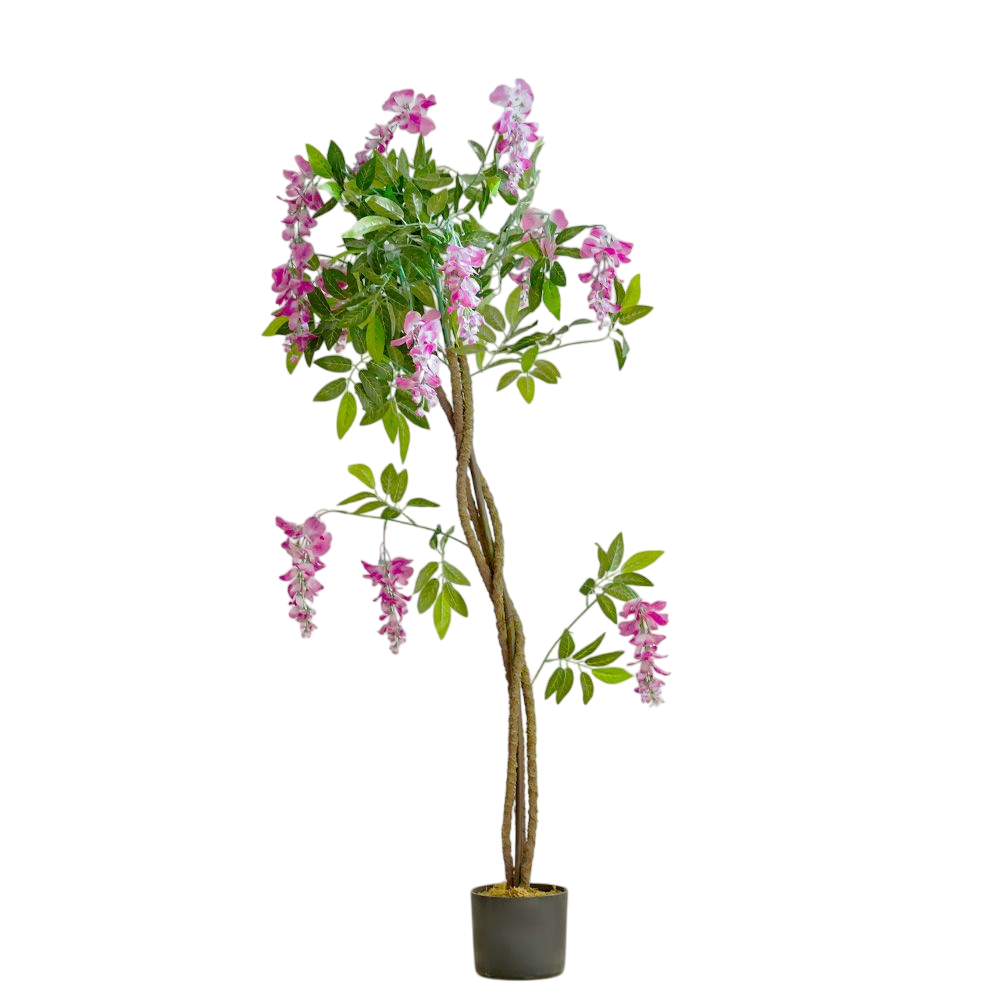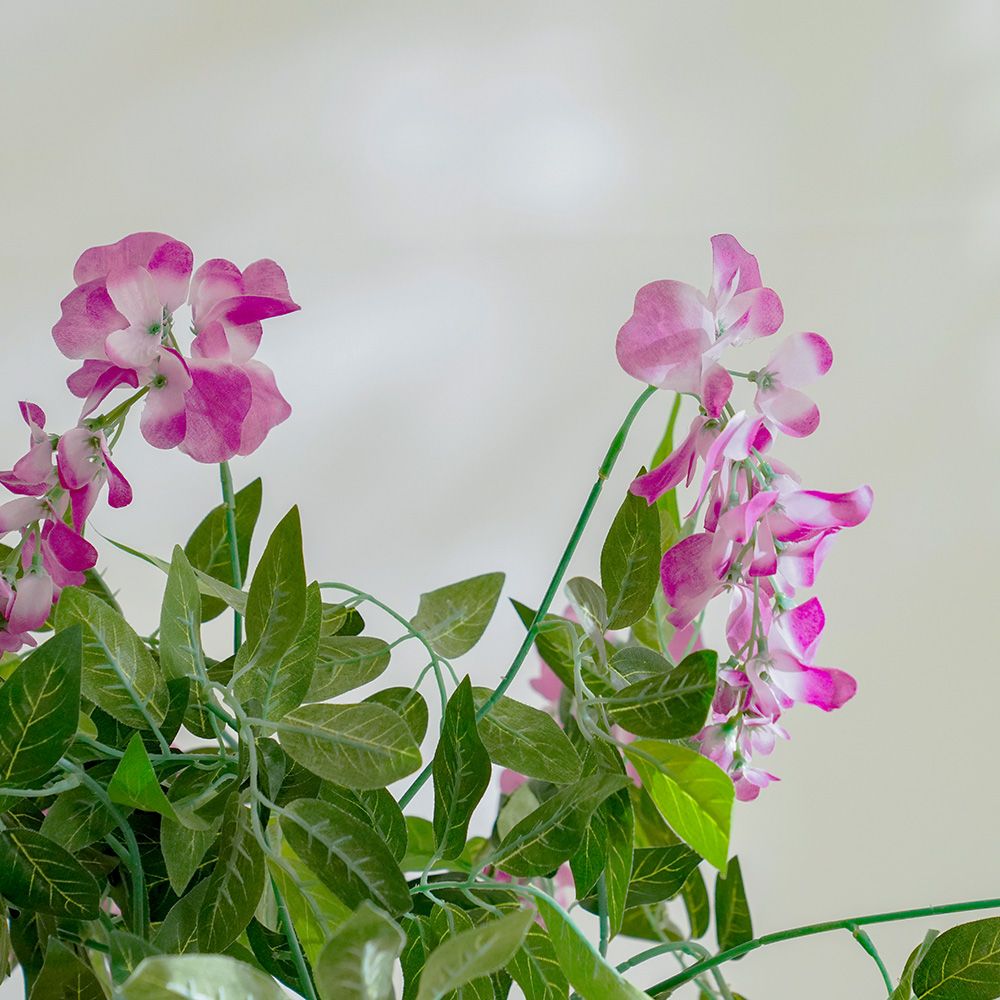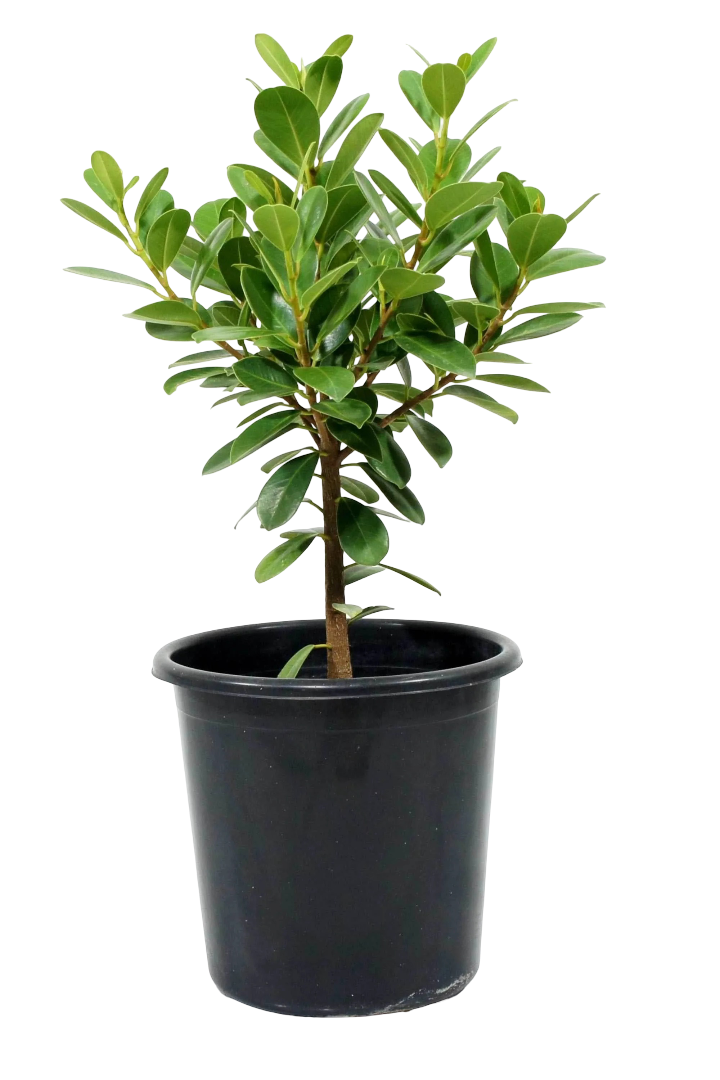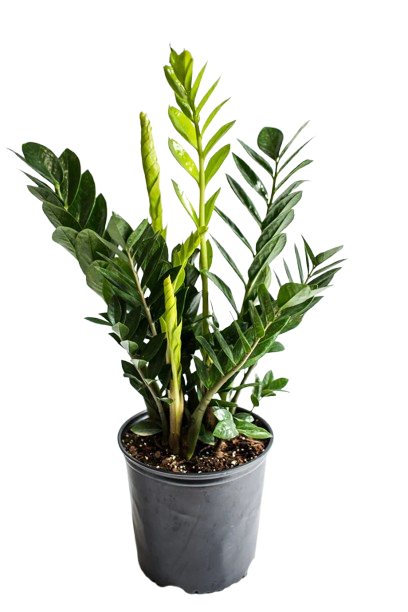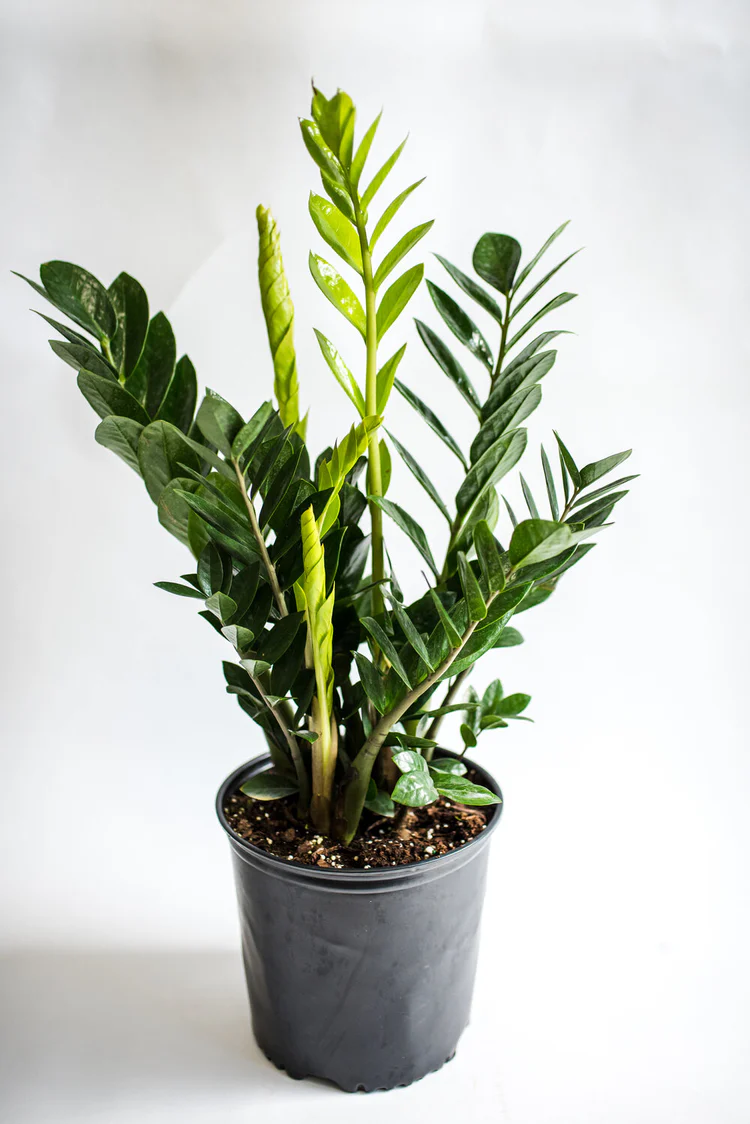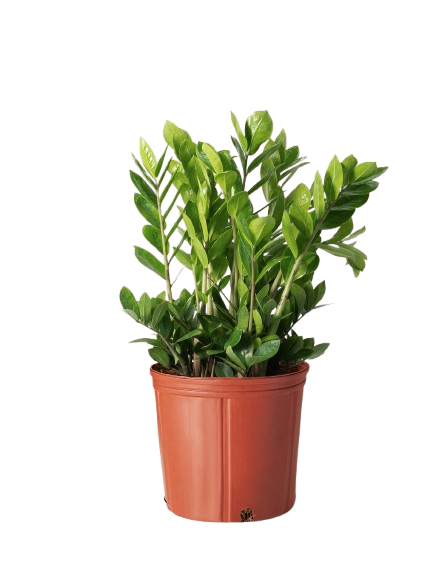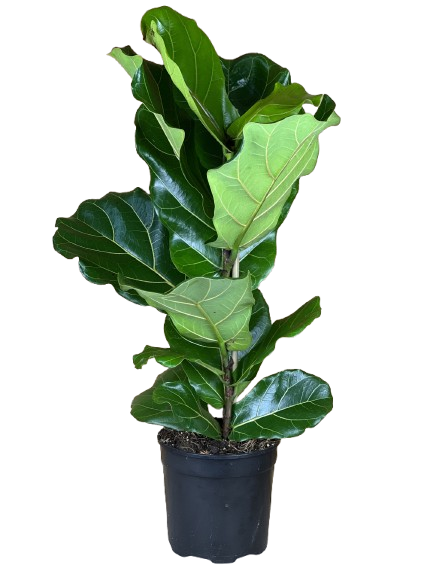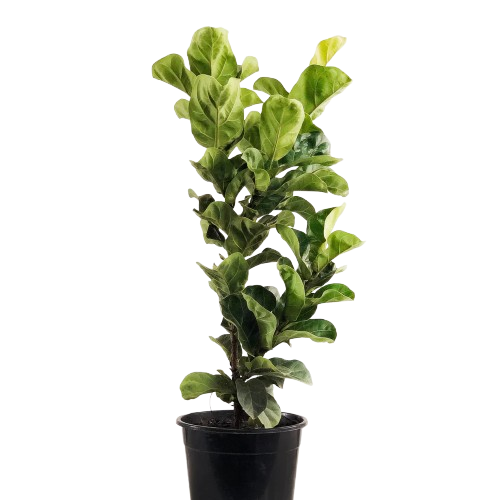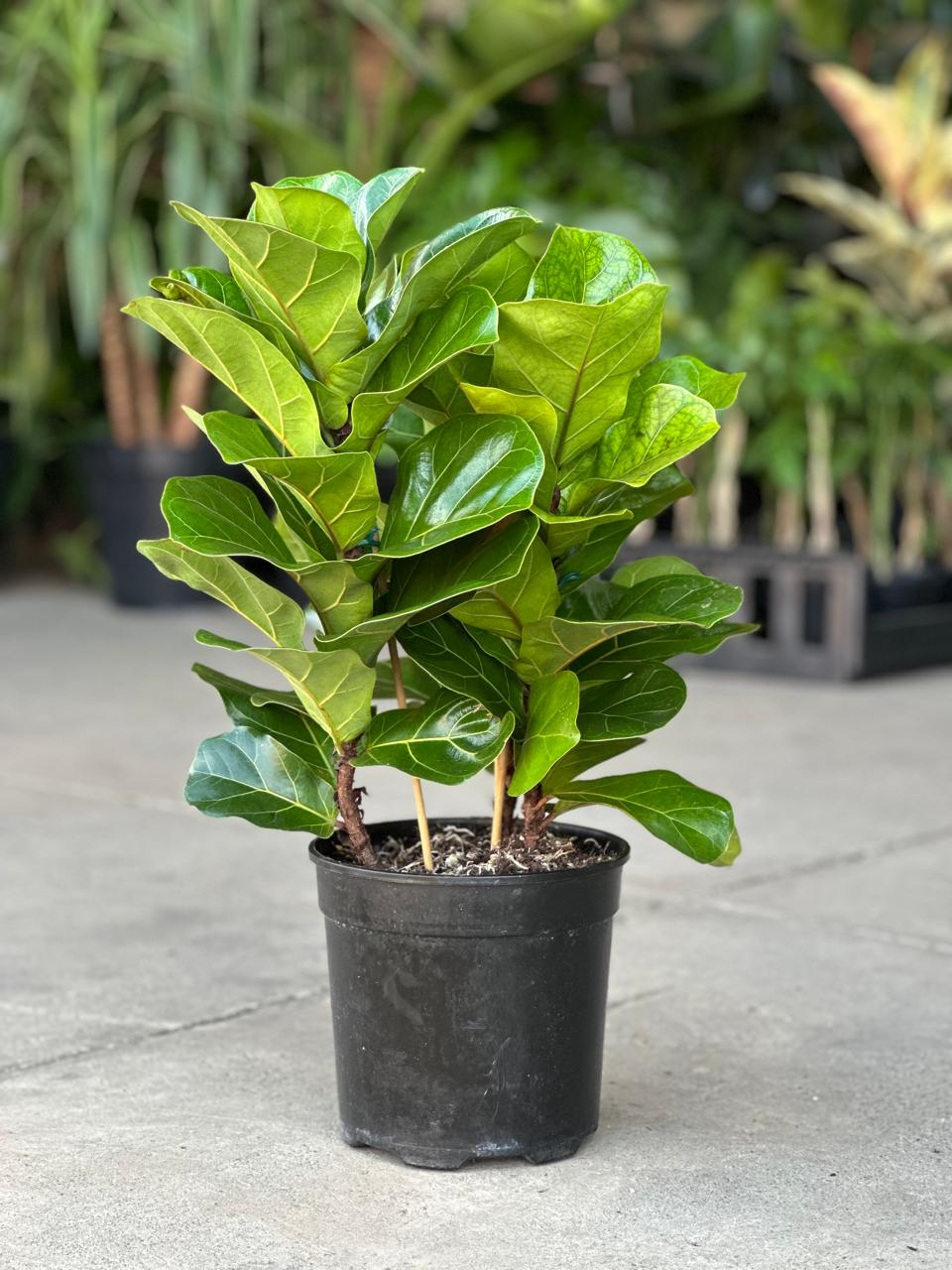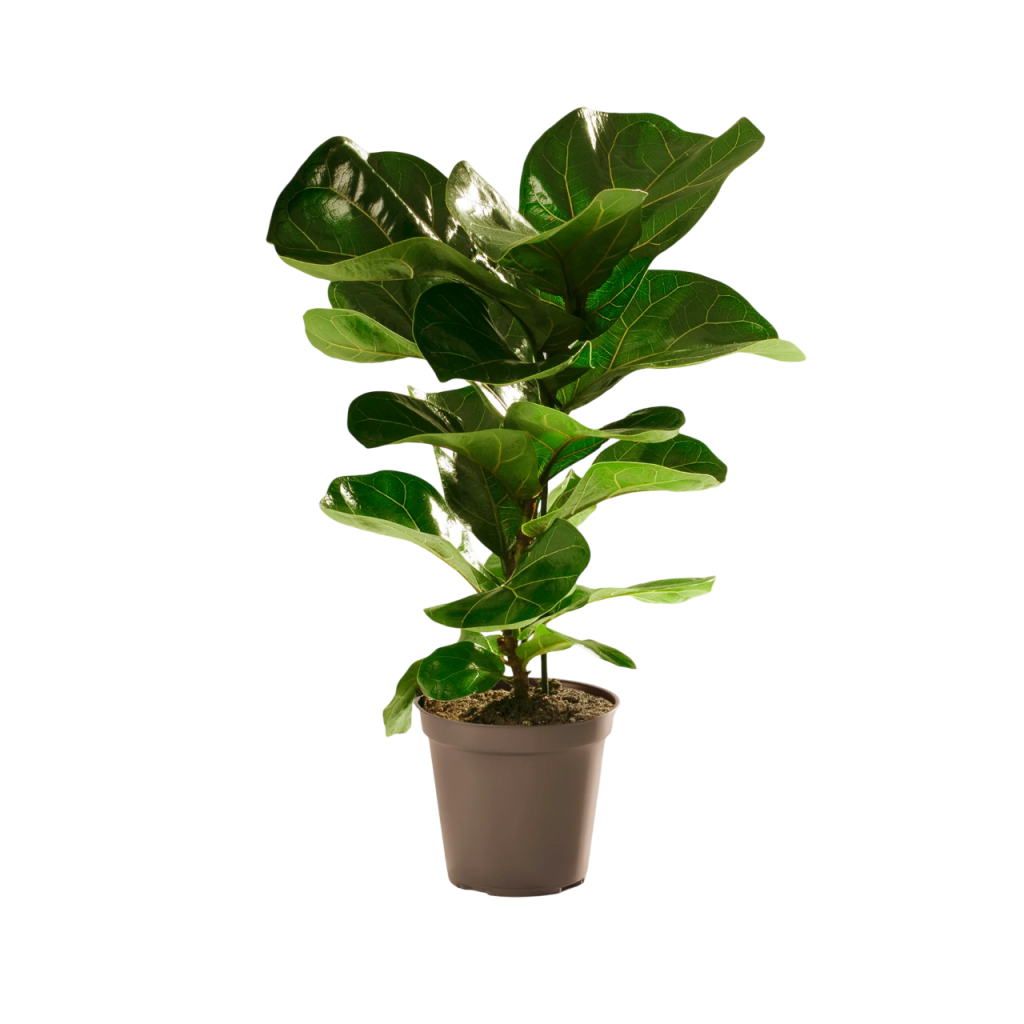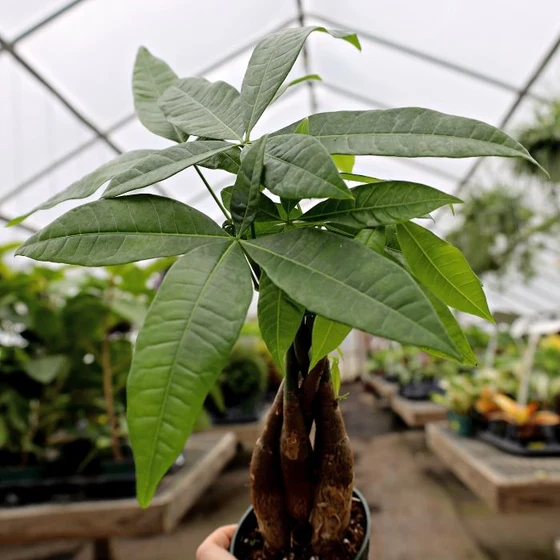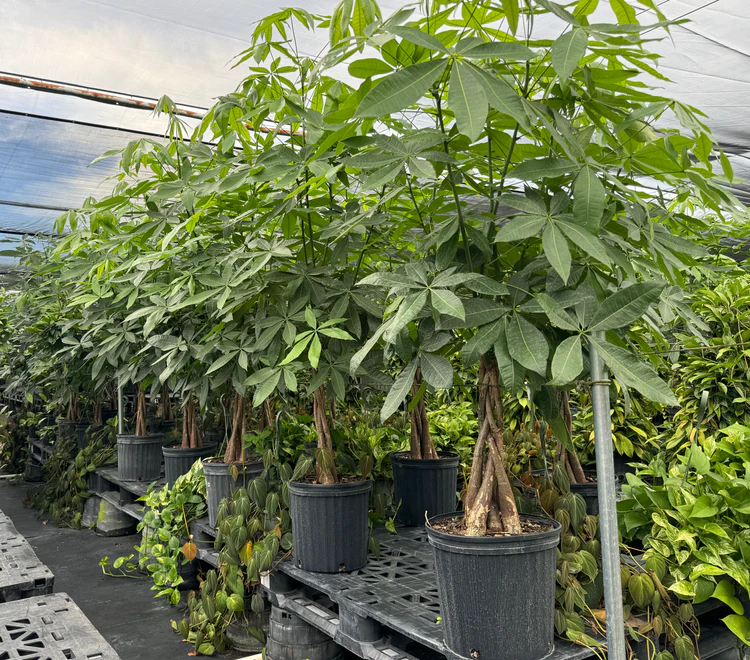Braided Money Tree in Kenya: A Symbol of Prosperity and Green Elegance
The Braided Money Tree (Pachira aquatica) is one of the most popular indoor plants in Kenya — loved for its glossy green leaves, unique braided trunk, and symbolism of good fortune. Native to Central and South America, this tropical plant has become a household favorite for homes, offices, and commercial spaces across Nairobi and beyond. The Money Tree is not only striking but also easy to care for, making it a top choice for plant lovers seeking both beauty and meaning.
Why Grow the Braided Money Tree?
- Symbol of Prosperity: In Feng Shui, it’s believed to attract wealth, success, and positive energy.
- Low Maintenance: Thrives with minimal watering and care — perfect for busy lifestyles.
- Air-Purifying: Helps improve indoor air quality by filtering toxins and increasing oxygen.
- Decorative Appeal: Its braided stem and lush canopy make it a stylish interior accent.
- Adaptable: Suitable for homes, offices, and indoor gardens across Kenya’s climate zones.
Cultural & Historical Significance
The Money Tree’s story began in Taiwan in the 1980s, where it was cultivated and braided as a symbol of prosperity and harmony. In Chinese culture, it’s often placed in homes and businesses to invite luck and financial growth. In Japan and Korea, it’s given as a gift for new beginnings — a gesture of goodwill and success. Across Africa, it’s now embraced for its beauty and symbolism, often seen in urban apartments and corporate lobbies as a modern-day charm of abundance.
Ideal Growing Conditions in Kenya
- Light: Prefers bright, indirect sunlight but tolerates low light conditions indoors.
- Temperature: Thrives between 18°C – 28°C; ideal for Nairobi and other moderate regions.
- Soil: Well-draining potting mix with peat or sand for aeration.
- Watering: Water every 1–2 weeks, allowing the topsoil to dry out between waterings.
- Humidity: Appreciates moderate to high humidity; mist leaves occasionally.
How to Plant It
- Choose a pot with drainage holes and fill it with rich, well-draining soil.
- Remove the plant gently from its nursery bag and loosen the roots slightly.
- Plant it at the same depth it grew previously, firming soil around the base.
- Water lightly to settle the soil and place it in bright, indirect light.
- Rotate the pot occasionally for even growth on all sides.
Care Tips
- Keep soil moist but never soggy — overwatering causes root rot.
- Wipe leaves regularly to remove dust and promote photosynthesis.
- Feed monthly during the growing season (spring and summer) with a balanced fertilizer.
- Prune to shape and remove any yellowing or damaged leaves.
Pests & Diseases
- Common Pests: Watch for spider mites, mealybugs, and aphids; treat with neem oil or insecticidal soap.
- Diseases: Root rot and fungal issues occur if overwatered or kept in poor drainage.
Pet Safety
The Braided Money Tree is non-toxic to cats and dogs, making it safe for pet-friendly homes and indoor spaces in Kenya.
Growing in Containers
This plant thrives in pots, making it perfect for apartments, verandas, or office desks. Use a medium-to-large container with drainage holes and position it in a bright area away from direct sunlight. You can style it with ceramic or woven planters from Planters.co.ke for a polished aesthetic.
Where to Buy a Braided Money Tree in Kenya
Find healthy Braided Money Trees and elegant planters at Planters.co.ke. We deliver across Nairobi and other major towns — bringing prosperity and greenery straight to your space.
Final Thoughts
The Braided Money Tree is more than just a beautiful plant — it’s a living symbol of growth, balance, and abundance. Whether you’re decorating your home, gifting a loved one, or enhancing your workspace, this charming tree brings a serene touch of nature and timeless good fortune wherever it grows.
Recent Posts
- Meyer Lemon Tree: A Burst of Citrus Sunshine for Kenyan Homes and Gardens
- Braided Money Tree in Kenya: A Symbol of Prosperity and Green Elegance
- Foxy Tail Palm : The Elegant Tropical Palm for Modern Landscapes
- Bird of Paradise in Kenya: A Tropical Statement Plant for Bold Spaces
- Parlor Palm :The Timeless Indoor Plant for Elegant Living

